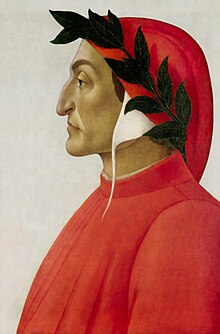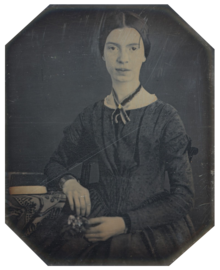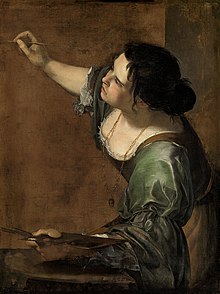 |
| Join Us Every Friday #NovConv |
To be a little different from the usual
'meet the author'
'meet the author'
let's meet a
character...
Orla

from









character...
Orla

from
Q: Hello,
I’m Helen, host of Novel Conversations,
please do make yourself comfortable. Would you like a drink? Tea, coffee, wine
– something stronger? You’ll find a box of chocolates and a bowl of fruit on
the table next to you, please do help yourself. I believe you are a character
in Mary Sharnick’s novel Painting Mercy. Would you
like to introduce yourself? Are you a lead character or a supporting role?
A:
Thank you, Helen. Yes, I am the narrator
protagonist of Painting Mercy, the sequel to Orla’s Canvas. Painting Mercy is the second novel in the
anticipated Orla Paints Quartet. And I
would very much enjoy a Negroni. I never tire of the cocktail’s combination of
bitter and sweet. It reminds me of life
and how I paint it on my canvases.
Q: What genre is the novel and what is it about?
A: Painting Mercy is realistic fiction set in
1975 New Orleans, Louisiana, where the fallout from the Vietnam war catalyses a
life-changing development in my relationship with Mercy Hoyt, a presumed orphan
airlifted out of Saigon, and an unexpected epiphany about the sexuality of my
lifelong confidant, Tad Charbonneau, alters the presumed trajectory of my
personal life.
Q: No
spoilers, but are you a ‘goodie’ or a ‘baddie’? (Or maybe you are both?)
A: Most certainly both. Like all other artists, my ego and my
insecurity clash regularly. I am alternately generous and selfish, relaxed and
demanding. I’ve been especially horrible
to a former lover, the sculptor Diego Godoy.
But to Mercy, so far nothing but helpful.
Q: Tell me about another character in the novel –
maybe your best friend, lover or partner … or maybe your arch enemy!
A: Tad is the person who knows me
best and loves me unconditionally. We
spent virtually all of our childhood together. When you read about us, you’ll
see that we can’t give one another up, no matter the now-messy circumstances we
find ourselves in. As I say in the
narrative Mary is drafting now, “…we were and are each other’s lodestar,
harbor, flag. Emergency room
friends. Each other’s true
confessor. The one you want to pull the
plug and deliver your eulogy when it’s time.”
Q: Is
this the only novel you have appeared in, or are there others in a series?
A: I’ve also narrated Orla’s Canvas,
and am continuing my role in The Contessa’s Easel and En Plein Air.
Q:
What is one of your least favourite scenes you appear in?
A:
A scene in Chapter 31 of Painting
Mercy, where my deep selfishness and disregard for Diego is revealed at one of
my art exhibits.
Q: And
your favourite scene?
A: Although it is a gruesome one, my
favorite scene in Painting Mercy occurs in Chapter 5, where the reader learns
the terrible self-hatred and suffering of Denny Cowles, childhood friend and
Vietnam veteran whose psychological war wounds destroy his capacity for a
normal life.
Q: Tell me a little about your author. Has she/he written any
other books?
A: Mary
has published four books thus far. Thirst, a historical novel of 17th-century
Venice, and Plagued, a fictionalized account of 15th-century Michael of Rhodes,
were released by Fireship Press in 2012 and 2014, respectively. Thirst is now being translated for the
operatic stage by composer Gerard Chiusano and librettists Bob Cutrofello and
Mary Chiusano.
Q: Is
your author working on anything else at the moment?
A:
In addition to the last two novels of
the Orla Paints Quartet, Mary’s other works-in-progress include a short story
collection—Here If You Want to Find Me--and a memoir about her paternal
aunt—Wife, Mother, Virgin, Whore? No,
Zia!
Q:
How do you think authors can be helped or supported by readers or groups? What
does your author think is the most useful for him/her
personally?
A:
Readers can post reviews, share author
news on social media, invite authors to book clubs (in person and via
technology), and, of course, buy our books.
For me personally, on-line conversation about books and the writing
process are particularly helpful.
Q: If your author was to host a dinner party what guests would
he/she invite
and why? Maximum nine guests – real, imaginary, alive or dead.
Dante Alighieri—His ability to imagine and
create an extensive, cohesive universe in exquisite language is
unparalleled. He’s also most
opinionated. I wonder what he’d say
about today’s cultural icons after a few bottles of wine.

Emily Dickinson—I’m guessing she would
decline the invitation, however.

Virginia Woolf—I’d be sure to serve a meal
like the one Virginia describes at the men’s college, not the women’s!

William Trevor—Perhaps he will tell the rest
of us how he sustains the elegiac quality so prevalent in his stories.

Edna O’Brien—She will add pizzazz, color, and
drama to the conversation. I hope she
wears a long red cape and enumerates her lovers.

Flannery O’Connor—It will be a struggle to
understand her Georgia-accented words, although she no doubt has important,
provocative theses to offer about the Roman Catholic faith. There is potential
for feisty debate with the others.

Georgia O’Keefe—Ah, simply Ah!

Artemisia Gentileschi—Teach me, Artemisia,
how to endure as a woman artist!

WinstonChurchill—So we’re all reminded to “never give up” and ensured of an aficionado of “spiritual
sustenance” best served and toasted in glasses.

Thank
you, Orla, it
was a pleasure talking to you. Would your author like to add a short excerpt? Meanwhile, would you like a refill of that drink…? I’ll join you I think-- Salute! Here’s to writing a best seller!
CONNECT WITH Mary Sharnick
Follow
Mary on Twitter @marysharnick
EXCERPT
Maria Callas’ voice as Violetta dove and soared as
I dipped my brush. Its timbre helped me feel the depth of character I was
after. How I was attempting to show sustained and blatant suffering on the
forehead of a six-year old girl whose wrinkled visage was not in the least
softened by the glint of sun that lit it in the photograph.
When the baritone joined Callas/Violetta to forge
an antiphony of contrasting voices, I turned my brush to the Negro soldier, his
machine gun aimed downward rather than at the children. But so close, so
dangerously close to the children. His slumped shoulders showed passion gone
from him, if he’d ever owned it. Was it someone’s freedom he was supposed to be
guarding? Fighting for, killing for? Had he been ordered to keep his machine
gun in hand? Perhaps the children would become a threat. Children, for God’s
sake! If he was afraid or righteous, his expression didn’t tell. Maybe he was just
stoned. Or tired. There he stood, body tilted like a human Pisa, left knee
forward, hands by his sides, helmet covering his forehead and eyebrows. He
might have been a model for hurry-up-and-wait. And why, anyway, is Mercy in the
forefront of the picture? What are her eyes fixed on? Is she witnessing
something she is seeing for the first time? Or has she observed the something,
or something like it, four, forty, one hundred-forty times? Where is her
mother? Off with a client, a Translator Hoyt from Cleveland? Or is she making
an honest living in a hospital while she lives with a man she cares for, a
Translator Hoyt from Cleveland vanished. Neither the soldier nor the children
act. They watch and wait. Their stilled gestures tell me they are not in charge.
The soldier’s gun ignores its function. The children’s dirty clothes and
smudged faces, their anxious expressions, tell me they are without immediate
access to what we Americans call the basic necessities of life. Food, clothing,
shelter, love.
Oh, Mercy! I cry
and paint. Lord have mercy.





Glorious writing, Mary, and the excerpt is a topic none should ever forget. Shared on twitter & Fb.
ReplyDeleteThank you Jane
DeleteDear Mary/Orla:
ReplyDeleteI adore you and everything you write! I love your sweet happy voice too! An audio book read by you would be awesome �� Love Jeanne
I can imagine, Mary, you teared up writing this; I surely did reading it. But then, I saw your guest list; to hold one's own with these illustrious characters, you must have a great deal of literary stamina and a good dose of confidence. Love your writing style.
ReplyDelete